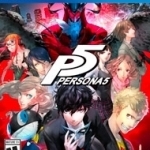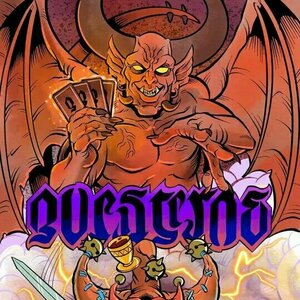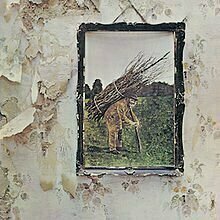Paganfire (19 KP) rated Persona 5 in Video Games
Aug 13, 2017
To really play this game and to get the full grasp of this game expect to put at least 150 hours into the initial game play. Persona 5 does have a new game plus which opens up other options and avenues for players to choose. Seriously though, my first play through was 153 hours. Plan to spend a lot of time in this universe.
That being sad, don't be scared! The game is visually stunning and the story line is unique and highly involved. You have character relationships, jobs, and side missions.
There is a heavy time management quality to this game. You make the choices to work, hang out, or go to the dungeon. The best way to state what Persona 5 is this: Time Management + Dating Simulator + Dungeon Crawler.
As the story progresses, so do the relationships you choose to grow. The main character will make a relationship with people the represent the major arcana tarot cards (so, 20+ relationships to juggle!) From there you get missions to save people from themselves. Some of these are accomplished in the major dungeons (7 overall), while the rest are in the peoples dungeon.
I love every aspect of this game. I had high hopes going into it and ATLUS did not disappoint.
Merissa (13792 KP) rated The Starfolk Arcana (The Starfolk Trilogy #1) by Martha Dunlop in Books
Jul 21, 2022 (Updated Jul 26, 2023)
I wouldn't call this a romance book, but rather a story with romantic elements. There is a lot of back and forth between Beth and Jonan as they try to work together, past lives and tarot cards notwithstanding. The whole world seems to be under Amelia's spell, and they need to stop it. It is an uphill battle though, as it is easier to give in to fear than to fight it.
Full of twists and turns, you are never completely sure who to trust. I understood Beth's frustration and hope for the general population but I found her blindness to her roommate to be just as irritating for me.
It does end on a bit of a cliffhanger which definitely left me wanting more. A great read I thoroughly enjoyed and have no hesitation in recommending.
** same worded review will appear elsewhere **
* A copy of this book was provided to me with no requirements for a review. I voluntarily read this book, and the comments here are my honest opinion. *
Merissa
Archaeolibrarian - I Dig Good Books!
Jul 11, 2022

Niki de Saint Phalle
Camille Morineau, Bloum Cardenas, Catherine Francblin and Niki de Saint Phalle
Book
This gorgeous volume offers the most complete overview in print of the oeuvre of Niki de Saint...
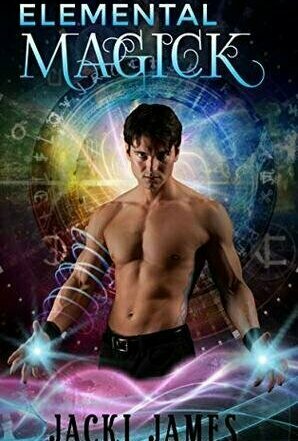
Elemental Magick (The Donovan Coven #1)
Book
For most of Aaron’s life, things have been uninteresting, boring, safe--just the way he likes...
MM Fantasy Romance Paranormal
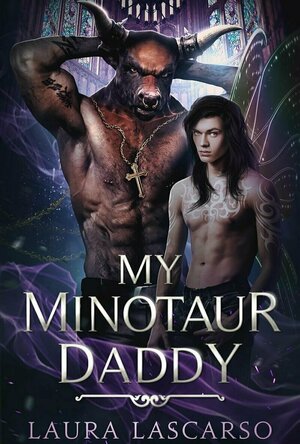
My Minotaur Daddy (Tales of the Arcane #1)
Book
What do you do when a beautiful hot mess walks into your bar? Recently separated from his...
MM Fantasy Romance Daddy / boy
Purple Phoenix Games (2266 KP) rated Questeros in Tabletop Games
Jan 21, 2021
Ero is the goblin court jester from the open who has been “chosen” to quest about the land to rid it of the ne’er-do-wells of the realm. In this solo adventure mode of Questeros the player will be donning the visage and character of Ero as they travel about developing their skills and having encounters with powerful beings. It is up to the player to guide Ero through the kingdom and rid it of the foul that is plaguing it.
DISCLAIMER: We were provided a prototype copy of this game for the purposes of this review. These are preview copy components, and I do not know for sure if the final components will be any different from these shown. Also, it is not my intention to detail every rule in the game, as there are just too many. You are invited to download the rulebook, back the game through the Kickstarter campaign, or through any retailers stocking it after fulfillment. -T
To setup the solo game, fondly and ingeniously-named “Ero’s Quest,” follow the rulebook to divide the tarot cards into their specific stacks and splays so that it roughly imitates the photo below. Draw a hand of five cards from the deck and the game may begin.
On a turn the player has a choice of seven actions that may be performed in any order. Each action may only be performed once per turn and when the turn is over the final action is Rest. To use the Develop action the player will place a card from their hand onto the Blades, Staves, or Orbs stacks in next-numerical order. This increases Ero’s attack and spending power. To Puchase cards Ero will spend Orb cards to look at the spent Orb value worth of cards from the draw deck, add one to their hand, and place the others at the bottom of the draw deck. At times Ero will need to Forget cards from hand in order to make room for more cards to enter it via the Learn action. Forgetting simply discards cards from hand while learning draws cards into hand from the draw deck. Recover is used to stand any kneeling/turned/rotated cards into an unused state by destroying cards of higher value from hand. As stated previously, to Rest is to end the turn by discarding the top card of the draw deck to setup the next turn.
I purposely left out the final action choice, Encounter, for a specific reason. Ero’s Quest is won when the entire deck of 21 Encounter cards is defeated. Each of these cards depicts a person or persons that Ero meets in his travels. Some require Ero to give them cards in order to pass. Some require Ero to succeed in battle against them in order to progress. In either case, Ero will need to get through the entire deck before his draw deck runs out in order to win the game.
Battle in Ero’s Quest is turn-based, where the Encounter persona attacks first, thus handing Ero wounds immediately. Wounds are suffered by spending Cups cards in value of the wound taken. For example, the Assassin is a value of 12, so they immediately wound Ero for 12 damage at the start of the encounter. Ero will spend a value of 12 Cups cards to simulate damage taken. Ero may then attack with a combination of available Blades, Staves, and any Ally cards obtained – one of each per attack turn. If the Encounter is defeated, Ero lives on. If the Encounter is not yet defeated, the battle continues with the Encounter card dealing damage and Ero responding with damage until one is defeated.
As mentioned earlier, the Encounter deck contains 21 cards with six of these being combat encounters. Ero has a ton of work to do and when each turn requires a card to be discarded before a new round may begin, they also have an in-game clock ticking and ticking each turn. However, if Ero is able to Develop their skills and overcome all the Encounters, the game is won and Ero becomes a Hero.
Components. Again, this is a prototype copy of the game, and many items are not fully completed in this version. That said, what we were provided is a large stack of tarot-sized cards, a first player Ero token (for multiplayer games), and a large pad of scoring sheets (also for multiplayer use). The cards are great quality and feature some really excellent artwork (on the cards that have the completed artwork on them). I do like the art style employed here, as I am a fan of fantasy themes, and I know that the game will probably ship with similar iconography, but may also be color-coded for ease of reference. All in all I believe Questeros is headed in the right direction for components, and a successful Kickstarter campaign may improve that even further.
The gameplay for the solo adventure of Ero’s Quest is really decent and engaging. So often I have found myself crunching numbers in my head and attempting to utilize my horrible card-counting “skills” to determine my next actions to take. Turns can be very intense and fruitful, or very frustrating and minimal, especially when you are waiting to draw that 3 of Blades so you can place it on the 2 of Blades sitting there, but it just won’t come up. And here you are sitting with the 4, 5, and 6 of Blades in hand and a Necromancer staring right at you awaiting combat. That is the definition of frustrating, but games usually take less than an hour, so even if an entire game is chock full of these turns, you can always setup a new game quickly and hope for better luck.
I like this one. I really do. It is interesting, has a great theme, so many delicious choices, and multiple ways to use the cards for game modes or tarot decks or even RPG FATE decks! On versatility alone I would rate this one high. If you are looking for a little card game to satisfy your mid-weight solo thirst, then check out Questeros. If you need a tarot game in your collection (as I look at mine and see no others), consider this one. It takes up very little shelf space, but looks great on the table and offers a great little solo experience. I have yet to beat the solo adventure, but Ero is calling my name for another go, and I might just have to give in. Again. And again.

The Fortune Teller - Palm-reading, Daily Horoscope
Lifestyle and Entertainment
App
Want to know your future? True Fortune Teller is what you need! Try palm-reading to know what...
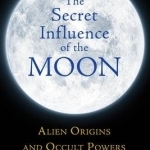
The Secret Influence of the Moon: Alien Origins and Occult Powers
Book
Despite being the most prominent celestial body after the Sun, the Moon has many qualities that...
DJ Muggs recommended Led Zeppelin IV by Led Zeppelin in Music (curated)
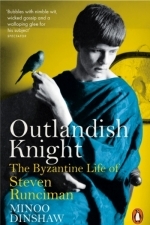
Outlandish Knight: The Byzantine Life of Steven Runciman
Book
'An extraordinary book ... exceptionally fascinating, always readable and penetratingly intelligent'...
Biography
